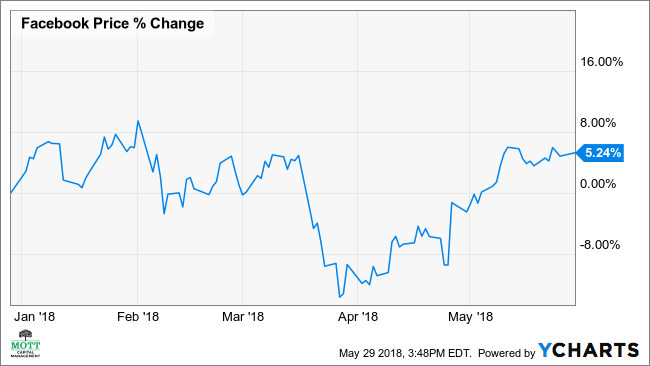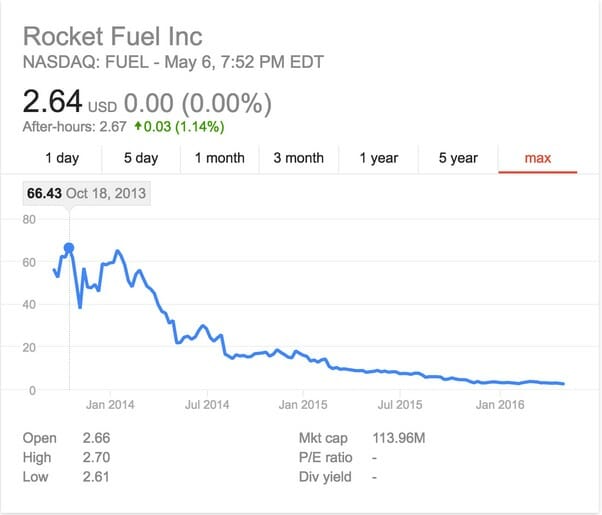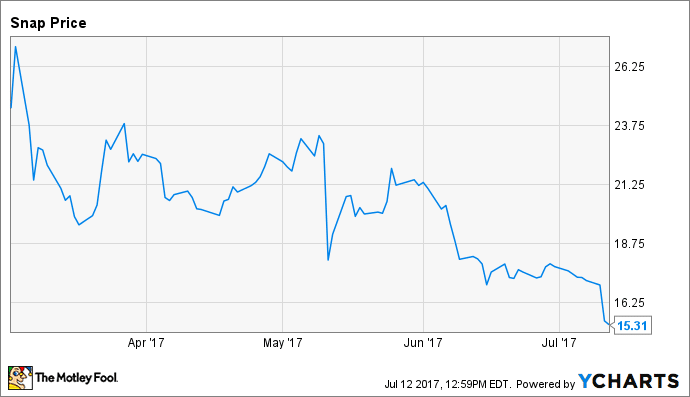You’ve probably heard the term but might not know what it means. What is an IPO? We’ll explain how they work and whether you should invest in one.
There have been so many big IPOs in the last decade. Some killed it, and some landed with a thud. We’ll explain what an IPO is and whether or not you should invest in one.
What is an IPO?
IPO stands for initial public offering and is sometimes called “going public”. It’s the first time a company sells stock to the public. Before an IPO, a company is private with a few shareholders, typically the founders and sometimes professional investors.
Before an IPO, the general public has no way to buy stock in a company apart from asking the owners to sell to you, but they don’t have to do so. Once a company IPOs, any investor can buy stock in it.
Why Go Public?
An IPO often serves as a way for companies to raise capital to fund current operations and new business opportunities. The typical IPO raises $100-$150 million. When the company raises money through the sale of stock, they have better financing options.
It’s less expensive for a public company to borrow money than a private one because of the public disclosures and accounting oversight that are required for an IPO.
An IPO is a regulated cash grab for founders and early investors, giving them to cash out or get a nice lump sum. The promise of an IPO can also be a way for a company to attract the talent they can’t afford to lure with salary alone.
When the company is private, the founders, private investors, and employees have shares but the shares don’t have much value since they aren’t yet publicly traded.
After the IPO, the value of those shares can skyrocket, and anyone who has a lot of them can make themselves very rich when they sell them.
Being a publicly traded company also shows that a company has been able to meet the ponderous federal regulations required to be publicly traded and that gives a sense of stability which can attract more investors.
When to Pull the Trigger
There are some things to consider before deciding if the time is right to IPO;
- You can forecast future financial performance. No one can predict the future exactly, but inaccurate revenue and cost projections can negatively impact valuation and the ability to raise debt or equity capital in the future.
- The right team is in place to guide the company through its next phase.
- Your company is audit-ready.
- The valuation expectations are realistic. Not every company is an Alibaba.
- There is a good reason for doing so.
- The company has a strategy to grow the business and give potential investors the returns they expect.
Even when the time seems right, not all companies are clamoring to go public.
Tech companies are staying private longer. Amazon went public in 1997, just two years after its first round of institutional financing, at a market capitalization of about $440 million. Compare that with on-demand ride service Uber Technologies, which remains private close to six years on and after recently raising $1.2 billion at a whopping $40 billion valuation.
Venture capital money is not exactly in short supply. It takes a long time to get a company in a position to IPO. SEC approval can take 6-9 months. It costs an average of $13 million to IPO. The time and money required don’t end once the IPO happens. There is an ongoing cost in both to remain public.
The constraints can turn some people off, especially when they are used to not answering to anyone. Public companies face greater bureaucracy and have more eyes watching every move.
So while an IPO used to be seen as the holy grail, it’s not attractive to all companies, or at least not all are in a terrible hurry to leap.
IPO Success Stories
Sometimes an IPO is wildly successful, but that is not determined by what happens on the first day or even in the first year. To have a successful IPO, we have to look much longer term.
The Coca-Cola Company went public in 1919, and a single share cost $40. But within a year, that price fell to $19. A failure right? You could hardly blame investors for selling off. But, of course, we all know today that Coca-Cola wasn’t a failure. It’s one of the most recognized brands in the world. As a testament to that, in 2017, that single share would be worth nearly $40 million.
Facebook knows the feeling. Its IPO in 2012 was $38 a share, but when trading started, it fell dramatically and didn’t recover for more than a year. Now the stock is worth more than $200 per share.

IPO Failures

Snapchat’s IPO has been called one of Wall Street’s biggest flops. The stock fell below its IPO price just four months after going public.

Blue Apron was another flop. When the company went public in June of 2017, it had a share price of $10. Three weeks later, it was down 35% at $6.52. It’s even worse now, in June of 2018, trading at a measly $3.27.

Should You Invest in an IPO?
During the height of the dot com days, investors could throw money at an IPO and make a small fortune. When everyone from the guy who sells you your coffee to your grandma is making money, it can look easier than it is.
But when the bubble burst and the IPO market settled back down to normal, investors couldn’t make the same gains just flipping stocks anymore. Not all IPOs work out.
WebVan was an online grocer that wiped out some investors during the dotcom days.
Investors who didn’t know what they were doing but who were merely caught up in the hype spent their savings to buy WebVan stock and watched their money disappear. In the end, the company couldn’t make money, and early investors were destroyed by valuation risk.
Take the Long View
So should you invest in an IPO? You can still make money in an IPO, but as we outlined above, you have to look long-term.
Warren Buffett’s mentor Benjamin Graham doesn’t think so. Why? Because the founders and early investors are looking to get rich and that means regular investors aren’t going to get that stock at a reasonable price.
Graham argues that a bump in the road will cause the price to fall within a few years giving value-minded investors the chance to scoop up a bargain.
If you remember the Coca-Cola example, that’s exactly what happened. From $40 to $19 in less than a year. Inexperienced investors should mainly stick to index funds which spread out risk and provide a respectable amount of growth over the long term.
But If You Must
Don’t say we didn’t warn you but if you are set on investing in an IPO, you have to do your research to evaluate a company. But remember, overall IPOs don’t perform well relative to the market.
1. Objective Research is a Scarce Commodity
Private companies are not under the same scrutiny as public ones and don’t have dozens of independent analysts eyeing them up. Most companies try to fully disclose all information in the prospectus but its kind of like a dating profile. It’s written by the seller and not an objective outsider.
Search for information on the company and its competitors, financing, past press releases, as well as overall industry health. You may find the company’s outlook is inflated and decide the best thing to do is pass.
2. Pick a Company With Strong Brokers
Try to select a company that has a strong underwriter. Investment banks can and have taken a company public that flopped but broadly, an influential broker is a sign of a healthy company.
Be wary of smaller brokerages, some of whom will underwrite any company. Goldman Sachs gets to be choosier about the companies it’s willing to underwrite than Joe Blow’s Investment House who will take whatever they can get.
3. Always Read the Prospectus
While you can’t believe everything you read in a prospectus, you still have to read it! A prospectus outlines the company’s risks, and opportunities and what the money raised in the IPO will be used for.
If the money is going to pay off debt or buy equity from the founders and private investors, it’s a red flag. It means the company can’t afford to pay off its loans without issuing stock.
Money that will be used for R&D, marketing or expansion is a good sign.
4. Be Cautious
Due to a lack of information or unbiased information, IPOs are uncertain. If a broker recommends an IPO, use extra caution.
Be fearful when others are greedy and greedy when others are fearful.
Tweet ThisIt’s an indicator that most institutions and money managers have passed on the underwriter’s attempt to sell the stock which means regular investors are getting the crumbs the big players didn’t want.
5. Consider Waiting for the Lock-Up Period to End
The lock-up period is a legally binding contract (three to 24 months) between the underwriters and insiders of the company prohibiting them from selling any shares of stock for a specified period.
When lock-ups expire, those parties can sell their stock. If the insiders hold onto the stock even after they can sell it, it can indicate a good buy for you too.
Reduce Your Risk
To further reduce your risk, ask some questions.
- If the company doesn’t grow enough to justify its price, why?
- What is insulating the company from the competition? Patents, trademarks, the critical executives running things? You want to look for things that would prevent another company from swooping in and doing the same thing better.
- Are the company’s business model and finances sustainable or could they be made obsolete through advances in technology (think Blockbuster) or a lack of capital?
- If the stock suddenly plunges 50% due to a short-term hiccup, can you take your emotions out of it and hold onto the stock if you believe the company’s long-term prospects remain positive?
There is No IPO Store
If you want to get in on an IPO, how can you do it?
- You can search S-1 forms filed with the SEC to find companies that are about to go public.
- To participate in an IPO, investors have to be registered with a brokerage firm. The company informs the firm who notify investors. Most firms will not allow your first investment with them to be an IPO.
- Most firms require investors to meet some criteria before they can participate in an IPO. They might require a certain amount of money to be in the account or that an investor has made a certain number of transactions.
- Once qualified, the firm typically has you sign up for notifications that alert you to new IPOs that meet your investment profile.
- Even if you manage to clear all these hurdles, you might still be on the outside looking in. Brokers tend to save their IPO allocations for “preferred” clients, ie, dudes with lotsa money so unless that describes you; you might not get a shot.
Get our best strategies, tools, and support sent straight to your inbox.
What’s Our Motto?
Damn! All Andrew and Thomas have done lately is tell us stuff we shouldn’t do! Sorry, this is another thing we shouldn’t do. Let the market take its course before you take the plunge. A good company is still going to be a good company, and a worthy investment, even after the IPO.
And if you do buy an IPO, it’s like any stock investment. It’s better to buy and hold, the official motto of LMM.
Show Notes
Siracha Hot Stout: A chile beer brewed by Rogue Ales.
Thank you to our sponsors: Legal Shield, Zip Recruiter, and Blooom

